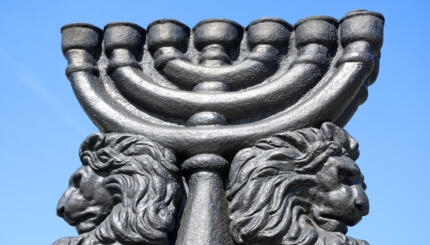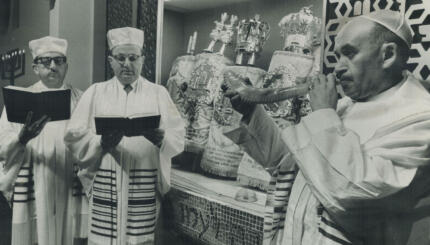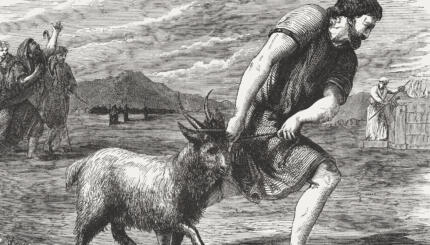calls for profound reexamination of our self-definition and our relationship to the rest of the world. The tradition recognizes the difficulty of this process and sets aside the day of Yom Kippur specifically and this whole period more generally to force us to focus on a subject we prefer to avoid. All of us are like Jonah, ready to flee to some exotic Tarshish rather than face the reality of who we are and, even more threatening, the possibility that we could become different.
Read the full text of the Book of Jonah on Sefaria.
Ironically, Jonah is the only successful prophet in the whole Bible, the only one whom people listen to and who causes them to actually change their ways. Yet it is his knowledge that he will succeed, not doubts about a possible failure, that causes Jonah to flee. Jonah is not afraid that the people of Nineveh will dismiss him as a quack; rather, he knows that they will repent. As he says: “0 Lord! Isn’t this just what I said when I was still in my own country? That is why I fled beforehand to Tarshish. For I know that You are compassionate and gracious God. . . . Please, Lord, take my life, for I would rather die than live.”
Rather than face that possibility, he flees. To the end, Jonah resists any sense of responsibility for the fate of the world or his own fate. Jonah lacks compassion for the people of the city, a compassion found in everyone else in the story, including the sailors, who are extremely reluctant to throw Jonah overboard. Lacking compassion for others, he lacks compassion for himself. Fearing teshuvah [repentance] and change in others, he fears change in himself and flees the truth, only to find it at least for a moment in the dark depths of the whale.

Help us keep Jewish knowledge accessible to millions of people around the world.
Your donation to My Jewish Learning fuels endless journeys of Jewish discovery. With your help, My Jewish Learning can continue to provide nonstop opportunities for learning, connection and growth.
Rosh Hashanah and Yom Kippur together affirm the chance for positive change; for no matter how old or routine, there is hope for new birth and new ways. Each year these days ask us, “Which shall it be, Tarshish or Nineveh? Darkness or light? Death or life?
Reprinted with permission from The Jewish Holidays: A Guide and Commentary (HarperCollins Publishers Inc.).



